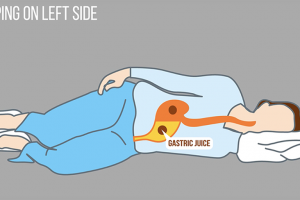Introduction:
The terms “health” and “wellness” are often used interchangeably, but they actually have different meanings. Understanding the true definition of health and wellness is crucial for anyone looking to improve their overall wellbeing. In this article, we will explore the meanings of health and wellness, how they are related, and practical ways to achieve optimal health and wellness.
What is the Definition of Health and Wellness?
Health is defined as a state of physical, mental, and social wellbeing, not just the absence of illness or disease. On the other hand, wellness is the overall state of being in good health, including physical, mental, and emotional health, and the ability to cope with the challenges of daily life. In other words, health is a component of wellness, but wellness encompasses more than just physical health.
The Relationship Between Health and Wellness
Health and wellness are closely intertwined, and one cannot be achieved without the other. Good health is the foundation of wellness, but wellness also includes emotional and mental wellbeing, social connectedness, and a sense of purpose in life. Achieving optimal health and wellness requires a balance between physical, mental, and emotional health, as well as a healthy lifestyle.
Tips for Achieving Optimal Health and Wellness
- Maintain a Healthy Diet: A balanced and nutritious diet is essential for good health and wellness. Eating a variety of fruits, vegetables, lean proteins, and whole grains can provide the necessary nutrients to support overall wellbeing.
- Exercise Regularly: Physical activity is not only important for maintaining physical health but also for improving mental and emotional wellbeing. Regular exercise can reduce stress, boost mood, and improve sleep quality.
- Get Enough Sleep: Quality sleep is essential for overall health and wellness. It allows the body to rest and repair itself, improves cognitive function, and supports emotional wellbeing.
- Manage Stress: Stress can have a negative impact on both physical and mental health. Learning how to manage stress through relaxation techniques, mindfulness, and other stress-reducing activities can improve overall wellbeing.
- Stay Connected: Social connections and a sense of belonging are important for emotional and mental wellbeing. Maintaining relationships with friends and family, joining social groups, and volunteering can provide a sense of purpose and fulfillment.
FAQs:
Q: Is being healthy the same as being well? A: No, being healthy is a component of being well, but wellness encompasses more than just physical health.
Q: What is the difference between mental health and emotional health? A: Mental health refers to the state of a person’s cognitive and psychological functioning, while emotional health refers to a person’s ability to manage and express their emotions in a healthy and productive way.
Q: Can stress have a negative impact on physical health? A: Yes, stress can lead to physical health problems such as high blood pressure, heart disease, and weakened immune system.
Conclusion:
In conclusion, the definition of health and wellness is more than just the absence of illness or disease. Achieving optimal health and wellness requires a balance between physical, mental, and emotional health, as well as a healthy lifestyle. By following the tips provided in this article, you can improve your overall wellbeing and unlock the true meaning of health and wellness. Remember, small changes can make a big difference in your overall health and wellbeing.

























Add Comment